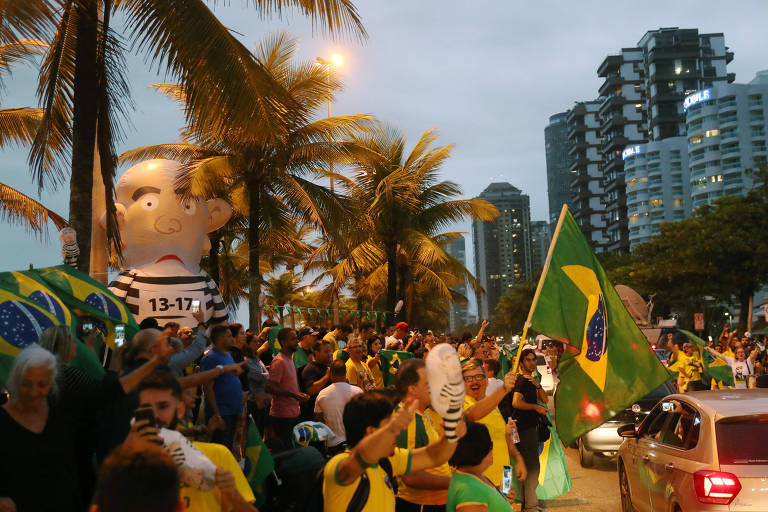Five years after thousands of Brazilians took the streets, in the largest rip in the country's social fabric since the reinstatement of democracy, traditional politics' rejection gained a new chapter.
The first round results from the 2018 general elections show a gathering of forces around Jair Bolsonaro (PSL). Whether he wins the runoff against Fernando Haddad (PT), the message will still be clear.
In 2014, in the trail of the 2013 protests, the usual PT-PSDB rivalry was still able to keep the social energy released by the streets together. Apparently, it also deceived traditional political leaders into thinking things remained the same.
Dilma Rousseff's political and economic debacle unsettled this arrangement which, being already debilitated by Operation Carwash, made the traditional politics denial movement swerve to the right. The protests during Rousseff's impeachment in 2016 already hinted at that.
Lula's transformation into the left's only totem ended up fueling the flames against PT that already burned in an antiestablishment bonfire.
If this partially explains Bolsonaro's rise, as a clear symbol of this wish for the "new", it also explains the establishment's inaction. Maybe new names forged in recent years, coming from within traditional parties could have succeeded in this mission, but the parties clearly chose traditional formulas -- the reckoning has already started, especially within PSDB, this year's biggest loser.
The stampede of this herd of unknowns in important states, like Minas Gerais and Rio, is not only a personal victory of Bolsonaro's. It is the scattered expression of protest votes, also shown in the list of most voted representatives and senators.
How much this effectively "breaks the system", as the controversial frontrunner says, is probably the first battle any president that will be elected in 2018 will have to face. Brasília is a complex organism with its own laws, in which the House Leaders College is worth more than hundreds of thousands of ballots.
It's possible that if Bolsonaro wins, he will encourage a new relationship, based on the force associated with his name. It will be particularly interesting to watch how the swarm of politicians who will seek out the retired Army captain will behave since it was exactly by denying these politicians that Bolsonaro made his name.
In Haddad's case, it's safe to speculate a more traditional continuity of the political process. The problem will be of another sort: how to negotiate with the hostility of a Congress where PT's support base is very eroded. Everything is negotiable, of course, but it's possible to predict that the turbulence would be different than the one Bolsonaro might face.
From an ideology standpoint, it's obvious to say that Brazilian conservatives bared their teeth after years being ridiculed by part of the establishment. Evoking that cliché preferred by ten out of ten progressives, everybody's crazy uncle, seen only once a year during the holidays, was finally heard. If he will actually dictate policy or will be absorbed by the system in force, it remains to be seen.
Translated by NATASHA MADOV
